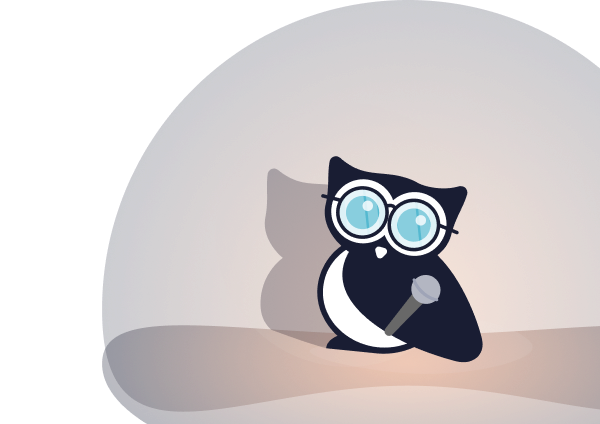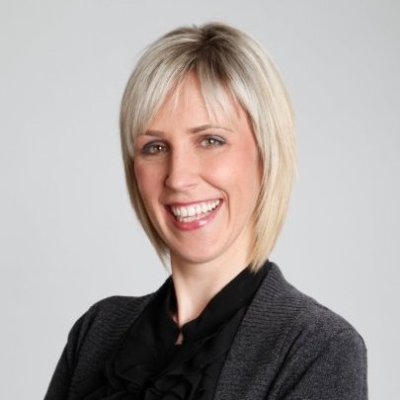
Write The Docs Portland 2020 Conference: A successful virtual edition
By Bri Hillmer on Writing docs from August 20, 2020
I attended the 8th-annual Write the Docs (WTD) Portland conference which took place August 9th through the 11th. Due to COVID-19, this year's conference was the first virtual edition of the conference.
I missed writing day, which, as always, was the first day of the conference. The main stage talks took place, as usual, on the second and third day of the conference, as well as, the whole host of other activities for attendees. The talks, as always, were high-quality and engaging, which is a tough bill to fill in the virtual format. My purpose here is not to review the conference content, but rather to provide a review of the virtual nature of the conference. If you are interested in the content, the ever-so-generous WTD team makes videos of the talks publicly available for you to view yourself. Watch the videos of the talks on the Write The Docs Portland 2020 YouTube playlist.
Communication
The pre-conference communication from the Write The Docs team is always very clear and customer-focused. But this year, with the challenge of COVID-19, they knocked it out of the park. Their communication, first when delaying the conference, and later when they decided to go virtual, was clear and compassionate. I love the sense of community that always comes through with this organization!
When WTD decided to go virtual, they sent communication to ticket holders laying out three choices: 1) convert to a virtual pass for all upcoming WTD events this year (equal to the cost of the in-person ticket) 2) convert their ticket to a pre-order for the virtual conference (included a partial refund), or 3) request a full refund. My switch to the virtual pass went smoothly.
Conference Platform
A few days out from the conference, I received an email invite to register for the online conference platform Hopin. I had not heard of the company or the platform so I checked out their marketing site in advance of the conference. I was encouraged by the customer stories on their marketing site.
Hopin made for a great conference experience. The primary features available for attendees within the platform were Reception, Main Stage, Sessions, Networking, and an Expo. The platform also provided a chat feature and a place for conference organizers to poll attendees.
Reception
The Reception area was the home base for attendees. Here I found the conference schedule and helpful reminders about what I could do at the conference using the other platform features. I appreciated the feature that highlighted the events in the schedule that were happening at the moment.
Main Stage
The Main Stage area was where the main stage talks took place. If you've been to a WTD Portland conference before this is the ballroom with the bouncy floor. The main stage talks were pre-recorded and streamed via YouTube. It honestly took me a talk or two to notice that they were pre-recorded. If you had told me in advance I would have been disappointed, but I quickly took to some of the benefits of the pre-recorded talks. First, if I was late to the session, I could simply rewind to the beginning. I also used rewind quite a bit to listen more closely to a part of the talk that was of particular interest to me. The ability to pause the talk was also quite helpful for bathroom breaks and other unavoidable interruptions. I'm sure the pre-recorded talks also eliminated the potential for the technical difficulties that might have arisen with live talks.
Between each talk, a slide announcing the next presenter was immediately displayed. The slide included a clock showing Portland time which was helpful for making decisions about my conference activities.
Each speaker was still announced live by a WTD MC. Introductions included pronouns and a speaker fun fact. This was an effective way to bring a live vibe and that hallmark WTD inclusivity.
There were a few hiccups the first day with the main stage video and audio that were resolved with ninja-like stealth. The Q&A was planned to follow the viewing of the pre-recorded talk on the main stage. Due to some technical difficulties, Q&A was switched to sessions (a separate area in the Hopin platform) for the rest of the conference. It would have been nice if the continuity between talk and Q&A had been possible as I forgot a few times about the Q&A option. The second day's main stage went off without a hitch.
Sessions
In the Sessions area of the platform attendees could access the main stage Q&As, unconference[1] sessions, and lightning talks. There were also rooms and hallways that simulated the rooms and hallways of McMenamins Crystal Ballroom where organic conversations form. I'll confess, the introvert in me just couldn't handle the pressure of joining one of these; though I did dabble in the networking and survived. More on this later.
I thought the unconference sessions worked quite well. These sessions were much like a Zoom conference where all attendees had full participation permissions and thus, could interact with one another. I always appreciate the variety of unconference session topics like "Music: what do you listen to while you're working? Let's talk stations, playlists, artists, etc." and "Agile Docs - Using sprints to manage your incoming work" and "Print documentation! Is there room for a mix of online & print documentation?" Unconference sessions are always a nice way to get to know fellow documentarians[2] without the need for small talk. The virtual format of the unconferences did not take away from the typical experience of these sessions. In fact, I found that this format solved some of the problems that can arise with unconference sessions. Sometimes, if a session is popular, it can be difficult to find space for the group in Lola's Room (the delightful, hops-scented room in the basement of McNamins where the unconference sessions are usually held). Also, if the session is quite large, it can be difficult to hear and be heard. So, I quite liked the virtual format for these sessions!
The lightning talks are often my favorite part of the whole conference. A lightning talk is a 5-minute talk where speakers quickly share a concept or bit of info you find interesting. Initially, due to a glitch with the sessions area of the platform, I couldn't get the lighting talk session to show up. Fortunately, I popped into the platform's chat feature and found that others were having the same problem. The recommended refresh did not bring up the session for me, but I logged out and back in and was able to access the session just fine.
The set up of the lightning talk sessions was to have Rose, lightning talk MC extraordinaire, and the speaker set up as presenters for the session. Rose counted them down to begin and stage hooked them after 5 minutes. The speaker chose to show their slides, turn on their camera, or both. It worked quite well. There was at least one speaker that had persistent technical issues across both days and was unable to present. We ran out of time for one presenter who shared his slides about empathy in docs and the corresponding documentation consumer personas that resulted from his perspective. I always appreciate the lightning talk content!
Networking
From the Networking area of the platform attendees could randomly connect with other attendees via a video chat session. This gave the introvert in me considerable anxiety at first, but I ripped off the bandaid and had a couple of delightful conversations!
Expo
The Expo had booths for sponsors. Sponsors had a variety of content available including videos and people available via chat. I would say that the sponsor experience was the most difficult thing to recreate for a virtual conference. I missed all the swag.
Chat
The platform chat was useful for staying informed when there were technical issues. The WTD team did a great job communicating about ongoing issues and how to resolve them once a fix was found. Beyond this, I found the chat a bit distracting. The Gen Xer in me just can't attend to two things at the same time. I was glad to have the ability to collapse the chat while attending talks and sessions.
All told, I'd give the Hopin platform two thumbs up. I was pleasantly surprised by the virtual conference experience. This is in no small part to the WTD team who was there to support attendees throughout the conference.
The WTD Community
When WTD announced that the conference would be going virtual I was not surprised but was disappointed that I wouldn't be getting my dose of Portland and the WTD community vibe.
Before attending my first conference I had heard tell of the magic of the WTD community. The experience of an in-person WTD conference was more powerful than I had expected. The sense of belonging you get from a WTD conference is so powerful. I remember telling colleagues on return from the first conference "I feel like I've found my people." So, I was pleasantly surprised at the community vibe the WTD team achieved at this virtual conference. The live MCs, the delightful music between speakers (provided by a community member's band), and the opportunity to connect with other community members via the sessions all made for what felt like a virtual community hug. As always, a huge thank you to the WTD team; you never fail to impress!
[1] Documentarian - A term created by Write the Docs. A documentarian is someone who cares about documentation and communication in the software industry, regardless of job title.
[2] Unconference - An opportunity for conference attendees to share ideas, solve problems, and take part in discussions in different ways than we can on the main stage of the conference. Unconference sessions allow for close interaction with others from the community. Any attendee can suggest and lead an unconference session on a topic – sessions can be organized around a presentation, a group discussion on a particular problem, etc.


Writing docs
(225)

General posts useful to all documentarians about writing documentation, editing and publishing workflows, and more.


Feature spotlight
(11)

Your flight plan for how to get the most out of KnowledgeOwl features and integrate them into your workflows.


Announcements
(21)

Major KnowledgeOwl company announcements.


Customer stories
(8)

Learn how others are using KnowledgeOwl & get pro tips on how to make the most of KO!


Company culture
(36)

Find out more about who we are and what we value.


Support
(58)

We believe good support is the foundation of good business. Learn about support tools and methodology.


Tools
(40)

Learn more about tools to solve various documentarian issues, within and beyond KnowledgeOwl.


All
(344)

Not sure what category you need? Browse all the posts on our blog.

Got an idea for a post you'd like to read...or write?
We're always looking for guest bloggers.
Learn moreStart building your knowledge base today
- 30 days free (and easy to extend!)
- No credit card required
- Affordable, transparent pricing
- No cost for readers, only authors
Want to see it in action?
Watch a 5-minute video and schedule time to speak with one of our owls.


